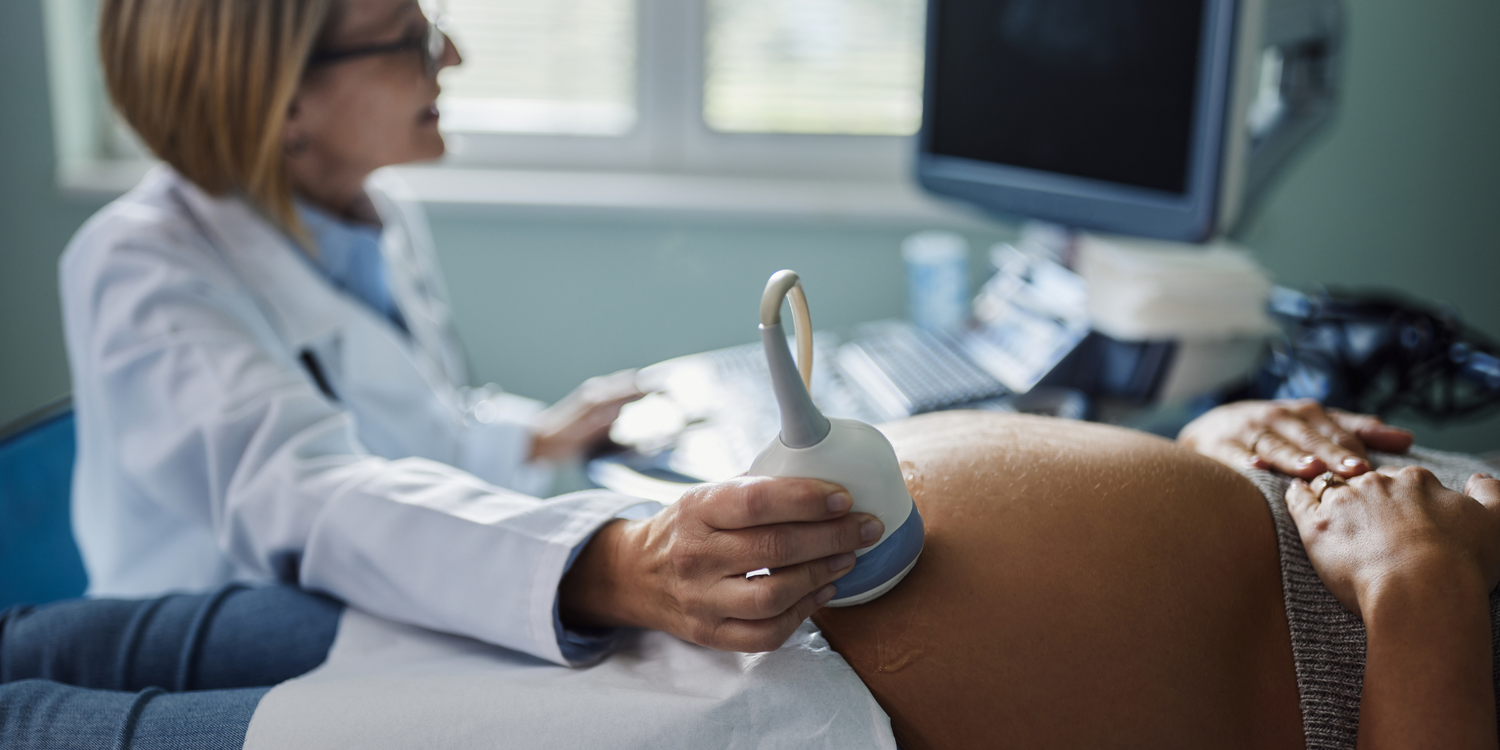Key Takeaways
- The third trimester is the final and exciting phase of your pregnancy, in which your baby completes important developmental steps, such as full lung maturity, while your body intensively prepares for birth.
- Exciting milestones await you in the final weeks, including regular check-ups, planning your antenatal classes and packing your hospital bag.
- With practical tips and comprehensive preparation, you can enjoy this important period and look forward to the birth in a relaxed manner.
The third trimester marks the final and particularly exciting phase of your pregnancy. During these last few weeks, your baby will take crucial developmental steps while your body prepares intensively for the upcoming birth. You will notice how your baby becomes more active and develops distinct movement patterns.
In the coming weeks, you can expect important milestones such as the completion of lung maturation and various check-ups. Typical pregnancy complaints such as heartburn or tiredness may increase in the third trimester, but don't worry – we will guide you through this significant time week by week and give you practical tips for preparing for the birth.
Baby's development in the 3rd trimester
The seventh month of pregnancy marks the beginning of a phase of intensive development for your baby. Most of your child's organs are developed and functional, although the lungs are still undergoing the final maturation process.
7th month of pregnancy (week 28-31)
During this phase, your baby will reach a height of about 34 to 37 centimetres and weigh 900 to 1,000 grams. The development of surfactant in the alveoli is particularly important – this is a substance that is essential for later independent breathing.
Important developmental steps:
- Regular hiccups to develop the respiratory muscles
- Development of a sleep-wake rhythm
- Reaction to movements and loud noises
- Opening of the eyes for short moments
8th month of pregnancy (week 32-35)
Your baby is now putting on a lot of weight and reaches about 1,800 grams. The skin smoothes out due to increased fat deposits, and the fingernails and hair grow significantly. An important milestone is the turning into the birth position, which usually takes place in this phase.
Development chart for the 8th month:
Pregnancy week | Height | Weight |
32nd week | 41 cm | 1,800 g |
33rd week | 43.5 cm | 1,980 g |
34th week | 45 cm | 2,237 g |
35th week | 46 cm | 2,500 g |
9th month of pregnancy (week 36-40)
In the final stages of your pregnancy, your baby's development focuses mainly on weight gain and the final maturation of organs. From the 35th week of pregnancy, surfactant is produced in such large quantities that independent breathing would be possible.
Final developmental steps:
- Complete development of the sensory organs
- Continuous weight gain
- Decrease in the amount of amniotic fluid
- Disappearance of lanugo hair
Your baby is considered fully developed by 37 weeks of pregnancy. The weight is now around 2,700 grams, although most babies continue to gain weight until they are born. Vision is present, but not yet fully developed – newborns initially perceive mainly light-dark contrasts.
Physical changes in the mother
While your baby continues to grow in the last trimester, your body also undergoes significant changes. This phase brings both new challenges and important preparations for the upcoming birth.
Weight gain and abdominal size
In the third trimester, you will reach the peak of your physical changes. Depending on your initial weight before pregnancy, you can gain between 7 and 18 kilograms. The average weight gain for women of normal weight* is between 11.5 and 16 kilograms.
Your weight gain is made up as follows:
Component | Weight |
Baby | 3-4 kg |
Amniotic fluid | 1-1.5 kg |
Placenta | 0.5-1 kg |
Uterus | 1-1.5 kg |
Water retention | 1.5-3 kg |
breasts | 0.5-1 kg |
Typical complaints
In the last trimester, various complaints may arise that are caused by the increase in size of your uterus and hormonal changes:
- Breathing and digestion:
- Shortness of breath due to displaced organs
- Increased heartburn
- Frequent urination
- Indigestion
Your body is now working at full speed – your heart pumps up to 50% more blood than before pregnancy. This can lead to hot flashes and increased sweating. Water retention, especially in feet and hands, is also typical and can account for up to three kilograms of your total weight.
Preparing for the birth
From the 34th week of pregnancy, your body will actively start preparing for the birth. The uterine muscles will begin to contract regularly, causing the abdominal wall to harden briefly. These practice contractions are an important part of the natural preparation for the birth.
Your breasts are also preparing for their future task. The production of the first breast milk (colostrum) can already begin – sometimes you notice the first drops when showering. This nutrient-rich foremilk contains a particularly large number of minerals and antibodies.
Towards the end of pregnancy, your baby lowers itself deeper into the pelvis. This can lead to a pulling and stinging in the abdomen, but also gives you more room to breathe. To prepare the tissue for the birth, you can perform a daily perineal massage from the 34th week of pregnancy.
Important note: If you notice any sudden, severe water retention, persistent headaches or an unusually rapid weight gain, talk to your doctor immediately, as these may be signs of pregnancy complications.
Important examinations and preparations
The regular check-ups and preparations in the last trimester of pregnancy are crucial for a safe birth. During this phase, the check-up intervals become shorter and important preparations for the birth are made.
Preventive check-ups
In the third trimester, the frequency of your check-ups is reduced. From the 32nd week of pregnancy, the appointments take place every two weeks. This close monitoring makes it possible to optimally supervise the development of your baby and your health.
Standard examinations include:
- Checking the baby's heartbeat
- Measuring your blood pressure
- Urinalysis
- Weight check
- Checking the baby's position
The third ultrasound between the 29th and 32nd week of pregnancy is an especially important part of the process. The following aspects are checked:
- Growth and development of the baby
- Amniotic fluid level
- Position of the placenta
- Approximate birth weight
From the 35th week of pregnancy, you can be tested for group B streptococcus if you wish. If the test is positive, you will receive a preventive dose of antibiotics during the birth to protect your baby.
Birth preparation course
A birth preparation course is a valuable support for expectant parents. The costs for pregnant women are covered by health insurance. The ideal time to start the course is in the 25th to 29th week of pregnancy.
The main course contents:
- Breathing techniques and relaxation exercises
- Birth phases and positions
- Options for pain relief
- Breastfeeding and the postnatal period
- Dealing with the newborn
The course offers you the opportunity to:
- prepare yourself mentally for the birth
- relieve fears and insecurities
- exchange experiences with other mothers-to-be
- prepare for the birth together with your partner
Pack your hospital bag
The hospital bag should be packed and ready to hand about four weeks before the due date, i.e. from the 36th week of pregnancy.
Important documents:
- maternity logbook
- health insurance card
- identity card
- Family register
- Allergy pass (if available)
For you:
Category | Recommended quantity |
Nightdresses/sleep shirts | 2-3 items |
Nursing bras | 1-2 items |
Comfortable trousers | 2 items |
Socks | 4 pairs |
Underwear | 4-5 items |
For your baby:
- 1-2 bodysuits in size 50/56
- 1 romper suit
- 1 pair of socks
- bonnet
- jacket (weather dependent)
- 2 burp cloths
Hygiene articles:
- shower gel and shampoo (preferably fragrance-free)
- toothbrush and toothpaste
- hand towels
- breast pads
- washcloth
Additional items:
- cell phone and charging cable
- drinks and small snacks
- music or tablet for entertainment
- change for vending machines
It also makes sense for your companion to pack a small bag, especially if they want to be present at the birth. This should contain a change of clothes, hygiene items and possibly swimwear for a water birth.
Important: Also inform close relatives about the location of your hospital bag in case you are unexpectedly in labor while on the road. The baby seat for the subsequent journey home can also be brought later.
Use the time before the birth to prepare important applications. Filling out the forms for parental allowance and child benefit in the last trimester of pregnancy will save you additional stress after the birth.
Conclusion
The last few weeks of your pregnancy bring significant changes for you and your baby. While your child is undergoing his final development and is considered fully mature from the 37th week of pregnancy, your body adapts to this special time with amazing precision. The increasing preliminary contractions, the baby's descent into the pelvis and the preparation of your breasts for breastfeeding clearly show that nature has a perfectly coordinated plan for this last phase of your pregnancy.
Your careful preparation through regular check-ups, attending a birth preparation course and packing your hospital bag in good time will create the best conditions for a relaxed birth. Trust that your body and your baby know exactly what to do. The close supervision by your team of doctors will give you additional peace of mind on your way to the birth.
References & Literature
- Baltzer, Jörg; Friese, Klaus; Graf, Michael; Wolff, Friedrich (eds.): Practice of Gynecology and Obstetrics: Complete Practical Knowledge in One Volume. Thieme. Stuttgart. 2004.
- Dr. Dirk Borgwardt, MD: My Pregnancy Companion. Trias. Stuttgart. 2008.
- German Midwives Association: Prenatal care by midwives. Hippocrates. Stuttgart. 2005.
- Holzgreve, Wolfgang; Sohn, Christof: Ultrasound in Gynecology and Obstetrics. 3rd edition. Thieme. Stuttgart. 2013.
- Jorch, Prof. Dr. med., Gerhard: Premature Birth. Advice and help for the first months of life. Urania. Freiburg im Breisgau. 2013.
- Lütjen-Drecoll, Elke; Rohen, Johannes W.: Functional Embryology. The Development of the Functional Systems of the Human Organism. 5th edition. Schattauer. Stuttgart. 2017.
- Nolden, Annette; Prof. Dr. med. Kainer, Franz: The Big Book of Pregnancy. Munich. GU Verlag. 2018.
- Stauber, Manfred; Weyerstahl, Thomas: Gynecology and Obstetrics. Dual Series. 4th edition. Thieme. Stuttgart. 2013.

